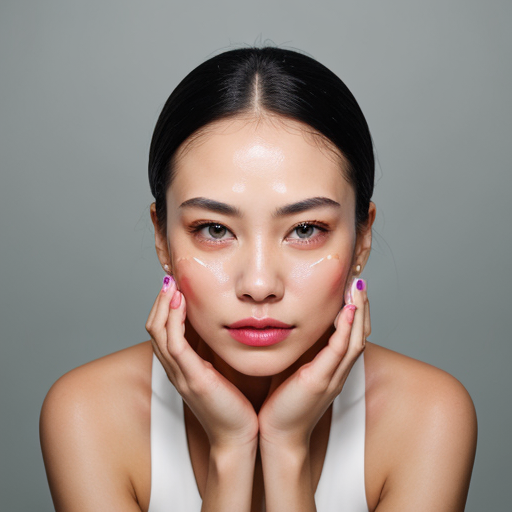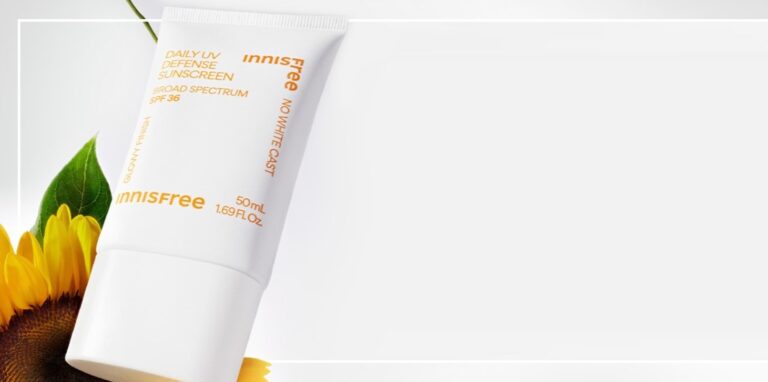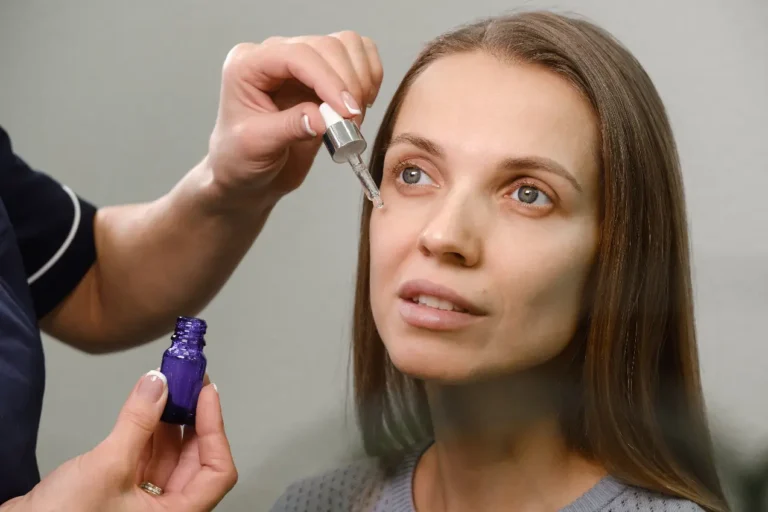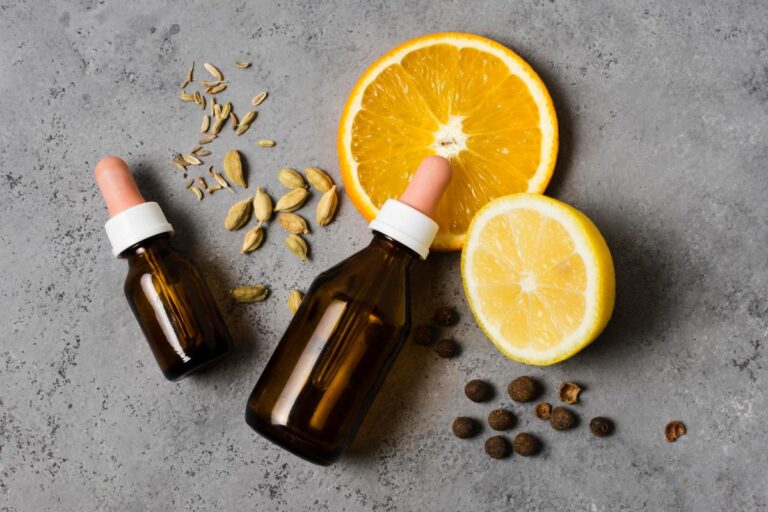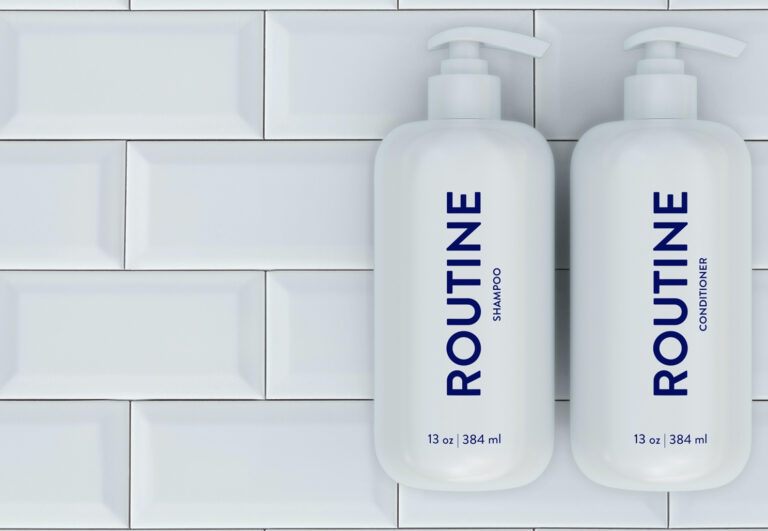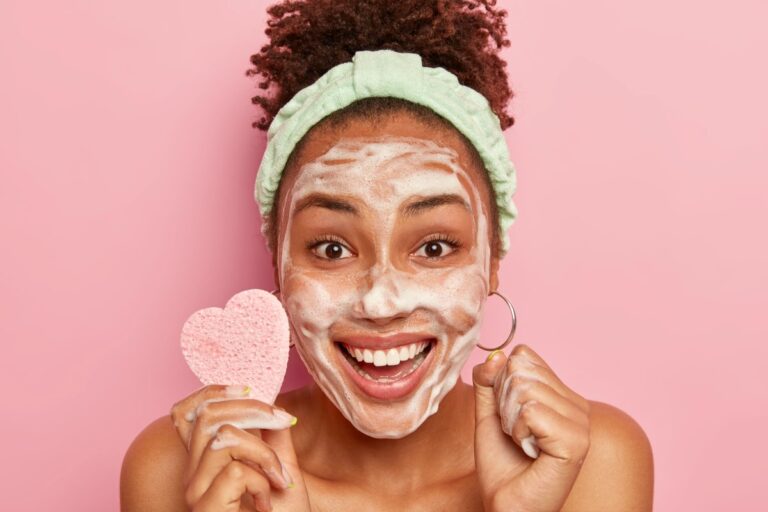Best Anti Aging Ingredients for Sensitive Skin
Choosing the best anti-aging serum for sensitive skin can be a bit challenging, as sensitive skin can react adversely to certain ingredients. However, here are some ingredients to look for in anti-aging serums that are generally suitable for sensitive skin.
There is no such thing as a standard skincare routine. Everything does not work for everyone, and I’m sure you got this article because you want a more personalized set of steps. Your skincare routine may vary depending on the type of skin you have. For example, if you have dry skin, you may opt for an oil-based cleanser rather than a foaming face wash. Similarly, sensitive skin types must be particular about the products they put on their skin because they can cause abnormal reactions.
The best way to choose a product is to break it down to its ingredients and see which ingredient may affect your skin differently. Here are some ingredients that are generally suitable for sensitive skin:
Hyaluronic Acid
Hyaluronic acid is used in many skin products like creams and serums. It is a powerhouse ingredient that retains skin moisture and maintains the skin barrier. In doing so, it keeps the skin plump and away from fine lines and wrinkles1. Because of its hydrating component, it supports collagen production while helping to achieve a fuller skin appearance. It also promotes elasticity and recoil, the opposite of which causes sagging skin.
Hyaluronic acid is naturally present in the skin and, hence, is less likely to cause adverse effects on your skin. And it doesn’t stop there; products that contain hyaluronic acid are also fragrance-free and don’t contain common allergens. People with increased sensitivity to fragrances and strong ingredients need not steer clear of this wonderful ingredient!
Vitamin C
Like hyaluronic acid, vitamin C is known to be a magic ingredient. It is known for its anti-aging and anti-inflammatory effects. Vitamin C is a potent antioxidant, protecting the skin from oxidative stress caused by the accumulation of ROS and UV radiation. Oxidative stress caused by UV rays plays a massive role in the aging process2. An ingredient like vitamin C in your daily routine can be more than beneficial in keeping these effects from manifesting. It doesn’t stop there; vitamin C also boosts collagen production, and something like that is a must when you’re trying to shrink those fine lines and appear more youthful.
We’re not done yet: this robust ingredient also helps fade dark spots and brightens the overall skin3. Hyperpigmentation becomes more common the older you get and is completely normal. You may find it uncharming, especially when it starts happening more frequently. Vitamin C can help with this! It inhibits the production of the pigment in your skin called melanin, making your skin complexion more uniform and brighter.
Vitamin E
Vitamin E is a fat-soluble vitamin and has similar effects as Vitamin C. Vitamin E is synthesized by plants. It protects the skin from UV radiation and acts as a free-radicle scavenger. UV radiation can damage your skin cells and cause apparent signs of aging. Vitamin E also restores the skin barrier. It forms a protective layer on top of the stratum corneum, the uppermost layer of the skin. It does so by deeply moisturizing the skin.
There is more: It also aids in wound healing4. It possesses anti-inflammatory properties and reduces redness and swelling that may accompany sensitive skin types. It can be used in both oral and topical treatments. Collagen in your skin declines as you age. Vitamin E can boost your collagen production and supplement the collagen that you need to keep wrinkles and fine lines at bay.
Vitamin E is non-acidic. Its neutral pH is less likely to interfere with your skin’s homeostasis. Moreover, it is found in natural products like vegetables and nuts and thus is less likely to cause adverse effects.
Niacinamide
Niacinamide is the physiologically active form of vitamin B3. It is widely recommended by dermatologists because of its minimal side effects and abundant benefits. Niacinamide’s role in anti-aging products is similar to that of all these ingredients in this list. It regulates sebum, minimizing the appearance of pores which may be more visible as you get older. It also boosts collagen, improving skin texture and reducing fine lines.
Moreover, niacinamide also regulates melanosome transfer. Melanosomes work to produce more pigment in your skin cells. By inhibiting their transfer, it reduces your chances of hyperpigmentation and eradicates existing dark spots.
Peptides
Peptides serve as a versatile ingredient in anti-aging skincare, suitable for all skin types and situations. The anti-wrinkle effects of peptides, particularly palmitoyl tripeptide-1 and palmitoyl tetrapeptide-7, contribute significantly to the improvement of skin texture and the reduction of visible signs of aging. Here’s a more in-depth look at how these peptides work and their impact on the skin:
Collagen Stimulation:
Palmitoyl tripeptide-1 and palmitoyl tetrapeptide-7 are known to be collagen-boosting peptides. Collagen is a structural protein that provides firmness and support to the skin. As we age, collagen production decreases, leading to the formation of wrinkles and fine lines. These peptides help stimulate the synthesis of collagen, promoting a more youthful and resilient complexion.
- Elastin Enhancement:
- In addition to collagen, peptides also play a role in enhancing elastin production. Elastin is another crucial protein responsible for maintaining skin elasticity. By promoting elastin synthesis, these peptides contribute to the skin’s ability to bounce back and resist sagging, resulting in a smoother and more toned appearance.
- Reduction of Expression Lines:
- Peptides, especially those targeting expression lines, work by inhibiting certain muscle contractions. Palmitoyl tetrapeptide-7, for example, may help relax facial muscles, reducing the appearance of expression lines caused by repetitive facial movements. This action can be particularly beneficial in areas prone to dynamic wrinkles, such as around the eyes and mouth.
- Cellular Communication:
- Peptides act as messengers, facilitating communication between skin cells. This signaling process helps coordinate various cellular activities, including the production of collagen and elastin. Improved communication among skin cells enhances the overall structural integrity of the skin, leading to a smoother and more youthful complexion.
- Long-Term Benefits with Consistent Use:
- It’s important to note that the effects of peptides on wrinkles are cumulative and may take time to become noticeable. Consistent and long-term use of skin care products containing these peptides is key to achieving optimal results. Regular application helps support the skin’s natural processes, gradually reducing the appearance of fine lines and wrinkles.
Retinol
This list would not be complete if retinol was not included. Though not as friendly on sensitive skin types as the other products mentioned, it is a powerful ingredient when it comes to anti-aging products. Retinol largely works by reducing the skin’s photoaging process5 and the skin’s overall sensitivity to sunlight. This vitamin A derivative also stimulates collagen in the skin, resulting in firmer, more youthful skin.
Along with all this, retinol is also known to boost cell turnover and increase the rate of skin renewal. This helps fade age-related hyperpigmentation at a faster rate. It also helps with textured skin as the new skin underneath is smooth and soft.
However, retinol does come with a few side effects. These side effects are more likely to manifest when a proper routine and schedule are not followed for application. Try to start with 1-2 times a week and layer it with hyaluronic acid and a moisturizer to avoid any side effects.
Conclusion:
This is not an exhaustive list. But these are the most popular ingredients that cause the least side effects. It is difficult to generalize as everyone’s skin reacts differently to the same products. I strongly suggest that you patch-test any new product that you purchase, even if it is generally believed to be safe. Also, purchase branded products that have good reviews and are known to be reliable. Make sure they’re also FDA-approved. Brands like Cerave, The Ordinary, Paula’s Choice, and Olay are examples of good products with great pricing. For more personalized recommendations, consult a dermatologist.
References:
- Eleni Papakonstantinou, Michael Roth, George Karakiulakis. (2012). Hyaluronic acid: A key molecule in skin aging.
https://www.ncbi.nlm.nih.gov/pmc/articles/PMC3583886/
- Mark Rinnerthaler, Johannes Bischof, Maria Karolin Streubel. (2015). Oxidative Stress in Aging Human Skin.
- Rizwan M Sanadi, Revati S Deshmukh. (2020). The effect of Vitamin C on melanin pigmentation- A systematic review.
https://www.ncbi.nlm.nih.gov/pmc/articles/PMC7802860/
- Mohammad Abid Keen, Iffat Hassan. (2016). Vitamin E in dermatology.
https://www.ncbi.nlm.nih.gov/pmc/articles/PMC4976416/
- S Mukherjee. (2006). Retinoids in the treatment of skin aging: an overview of clinical efficacy and safety.
https://www.ncbi.nlm.nih.gov/pmc/articles/PMC2699641/
